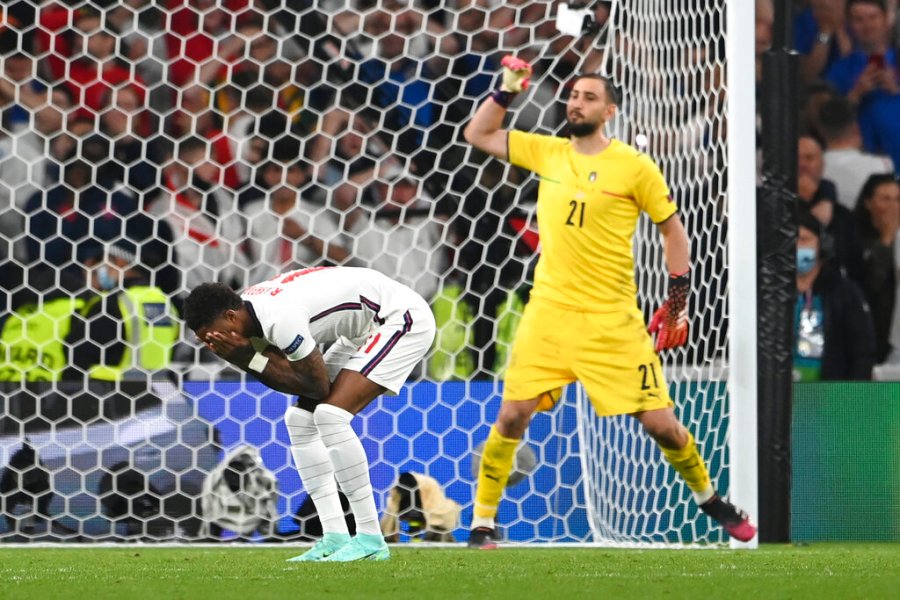Andrew Brown Jr. shooting: Judge denies immediate request to release bodycam footage
Testing on staging11
ELIZABETH CITY, N.C. (NewsNation Now) — A North Carolina judge Wednesday denied requests to publicly release body camera footage in the shooting death of Andrew Brown Jr.
Brown, a 42-year-old Black man from Elizabeth City, was shot to death by one or more deputy sheriffs trying to serve drug-related search and arrest warrants. An eyewitness said Brown tried to drive away but was shot dead in his car.
Judge Jeffery Foster said he believed the videos contained information that could harm the ongoing investigation or threaten the safety of people seen in the footage. He said the video must remain out of public view for at least 30 days.
“The release at this time would create a serious threat to the fair, impartial and orderly administration of justice,” Foster said.
However, he said, videos from multiple body cameras and one dashboard camera must be disclosed to Brown’s family within 10 days. He said some portions of the video may be blurred or redacted, including conversations between officers. The family previously saw only a 20-second portion of one body camera video.
The judge overseeing Wednesday’s court hearing on the video was considering petitions to release the footage, including filings by a media coalition and by the county attorney on behalf of the sheriff. A North Carolina law that took effect in 2016 allows law enforcement agencies to show body camera video privately to a victim’s family, but requires a court to authorize any public release.
The judge also said videos will be held from the public for at least another 30 days.
The judge’s decision came shortly after a North Carolina prosecutor said that Andrew Brown Jr. had hit law enforcement officers with his car before they opened fire.
During the hearing, District Attorney Andrew Womble said that he viewed body camera video and disagreed with the characterization by attorneys for the family of Brown that his car was stationary when the shooting started.
Womble said the video shows that Brown’s car made contact with law enforcement twice before shots could be heard on the video.
“As it backs up, it does make contact with law enforcement officers,” he said, adding that the car stops again. “The next movement of the car is forward. It is in the direction of law enforcement and makes contact with law enforcement. It is then and only then that you hear shots.”
Womble argued that body camera video from the shooting, a portion of which was shown to the family on Monday, should be kept from the public for another month so that state investigators can make progress on their probe of the shooting. Pasquotank County Sheriff Tommy Wooten has said no deputies were hurt during the incident.
Attorney Ben Crump and co-counsels Bakari Sellers, Harry Daniels, and Chantel Cherry-Lassiter released a statement on behalf of Brown’s family following the judge’s ruling.
We are deeply disappointed by the judge’s decision to not make body camera footage from the involved officers available to be viewed by the public. In this modern civil rights crisis where we see Black people killed by the police everywhere we look, video evidence is the key to discerning the truth and getting well-deserved justice for victims of senseless murders. Just look at the murder of George Floyd – if the world had not seen that clear and disturbing footage, there might not have even been an ounce of accountability for those officers. We refuse to be discouraged and vow to keep the pressure on these agencies until we get to the truth. We will not stop saying his name. Andrew Brown Jr.
brown family and attorneys
Wooten said in an exclusive interview with NewsNation affiliate WAVY Wednesday that if it were up to him he would have released the full video as soon as investigators allowed.
The shooting has prompted protests and demands for accountability in the eastern North Carolina city of about 18,000. Elizabeth City set a curfew beginning at 8 p.m. Tuesday and continuing until Thursday. Multiple demonstrators violated the curfew and were arrested Tuesday night.
Brown’s family and attorneys viewed 20 seconds of the bodycam video Monday which appeared to show Brown with his hands on the car steering wheel before being shot by deputies.
Lassiter saw the footage and said in the bodycam footage Brown did not appear to be a threat to officers as he backed his vehicle out of his driveway and tried to drive away from deputies with guns drawn.
“There was no time in the 20 seconds that we saw where he was threatening the officers in any kind of way,” she told reporters at a news conference after the release.
Wooten asked for patience Monday while the State Bureau of Investigation probes the case.
“This tragic incident was quick and over in less than 30 seconds, and body cameras are shaky and sometimes hard to decipher. They only tell part of the story,” he said.
Attorney for the Brown family, Wayne Kendall, said Tuesday that an independent pathologist hired by Brown’s family examined his body. Two shots to Brown’s right arm penetrated the skin and two other shots to the arm grazed him, Kendall said. The pathologist could not determine the distance from which they were fired.
Brown was shot in the back of the head in what lawyers called a “kill shot.” The pathologist who performed the autopsy did not speak at the news conference and did not appear to be there.
The state’s autopsy has not been released yet. The Brown family’s lawyers also released a copy of the death certificate, which lists the cause of death as a “penetrating gunshot wound of the head.” It describes the death as a homicide. The FBI also announced Tuesday that’s launching a federal civil rights investigation into the case.
A funeral will be held next Monday for Brown in Elizabeth City with the Rev. Al Sharpton delivering the eulogy.
The Associated Press, Reuters contributed and NewsNation affiliate WAVY contributed to this report.








